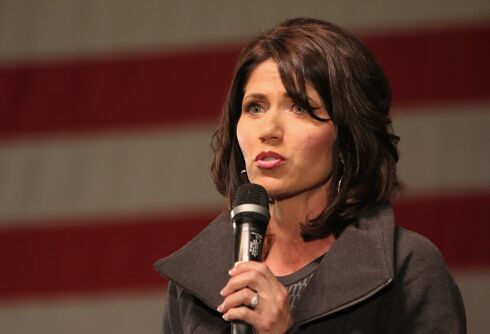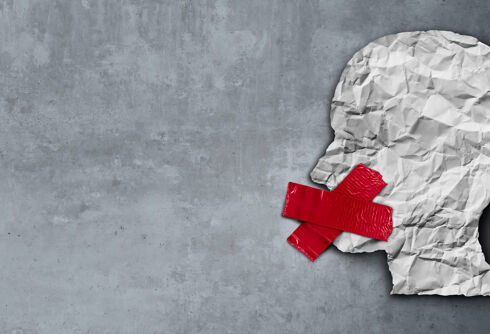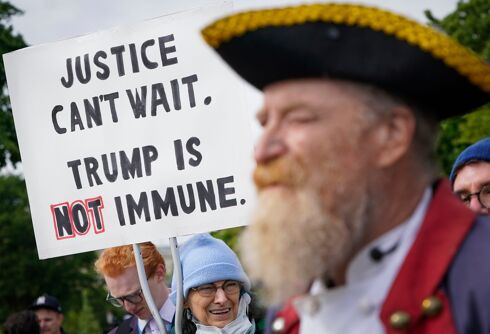As I travel across the United States and abroad delivering presentations on queer history, participants often ask me to provide a perspective on where we have come and where we still need to go.
I sometimes begin by discussing a family incident that has forever changed me, which my parents talked about at dinner one evening in 1962 when I was a 15-year-old high school student. It began during the day as I reflected on my great-uncle William, a brother of my paternal grandmother, Dorothy. I always enjoyed William visiting our home. He was one of the most intelligent, kind, and caring people I had ever known.
When I was very young, he read me stories, and he always brought a little gift each time he visited. I was always amazed by how much he knew. I hoped to know as much when I was older.
Not seeing William for a few months, I asked my parents over the dinner table where he had been. “Oh,” said my father, “He hasn’t been feeling very well lately, but we hope he will feel better soon.”
“I will call him to see how he is feeling,” I said. “It’s too bad,” I continued with deep concern, “that he never married, and he may not have anyone to take care of him. By the way, why didn’t Great Uncle William ever marry?”
“You haven’t heard the story?,” my father quipped with a curious expression on his face. When I asked “What story?” he revealed a not-so-hidden family “secret.”
Walking behind his father into the bedroom after eating dessert, William shut the door behind him after Barney told him to do so. Barney sat upon the bed and ordered William to come closer to him. “William, you must do exactly as I say,” he commanded. “William, take down your pants.”
Startled, William responded, “What? Why?” Barney shouted this time: “Take down your pants!” At this point William obeyed. As he did this, great-grandfather Barney pulled a sharpened kitchen knife from beneath a bed pillow, grabbed William’s testicles, and chopped them off in one quick action.
William shouted in agony and extreme pain, and he fainted as his body went into shock. Hearing his screams, William’s other siblings and mother ran into the room and applied cloth bandages to prevent him from bleeding to death.
Barney refused to allow the family to take William for professional medical treatment, and he ordered them not to reveal to anyone what he had done. William somehow physically survived the traumatic injury.
My father told me that William lived in shame all his life. He was never involved in an intimate romantic relationship, and he always lived alone. Though he maintained friendships and he acquired a good education, a cloud of depression and melancholy forever hung over him.
Startled and in shock myself, I asked my father, “Why did Barney do this? How could anyone do this to anyone, let alone their own son?” My father responded: “Well, Barney suspected William of being homosexual, and he didn’t want him to be.”
I had feelings for other males ever since I was five or six years old, but I knew even before that night at the dinner table that I shouldn’t tell anyone. The information I learned about Uncle William pushed me even deeper into silence.
I always felt that something more than genetic material connected me with William. Though he died many years ago now, I still think fondly but with a sense of pain each time I remember William. We remain attached through time and space by a familial history and a history of oppression and sense of identity.
In his life, William served as a reluctant pioneer in the struggle for respect and equality.
Researchers analyzed and crunched the numbers of over 325 national surveys going back to 1977 focusing on five primary issues: general attitudes toward LGBT people, legality of same-sex relations, legal recognition of marriage for same-sex couples, rights of adoption for same-sex couples, coverage of sexual and gender identities in non-discrimination policies and laws, and inclusion in military service.
According to the study: “Public support for lesbians and gay men has doubled in the past three decades, more so than public support for any other group surveyed over the same time period.” The majority of surveys also report an increasing favorability toward bisexual people in 2011.
While this is generally good news, other parts of the study show that public support for bisexual women surpasses support for bisexual men, and that support for bisexuals is lower than for lesbians and gay men. In addition, while many of the studies that researchers analyzed did not address support for trans* people, overall public opinion “remains less supportive, or comfortable, than reported feelings toward lesbians and gay men.”
The study also found that support for marriage equality has more than doubled since the early 2000s, and support for child adoption rights for same-sex couples has recently reached an all-time high of 63%. Also, while 29 states still have not passed laws protecting LGBT people from institutionalized discrimination, 72% of the public currently supports laws protecting lesbian and gay people from employment discrimination, and 75% support similar laws protecting trans* people.
Approximately 48,500 LGB people currently serve in the U.S. military, and support for their service stood at 70% in 2012. The U.S. Department of Defense still maintains a discriminatory policy toward trans* service members, though it is currently reevaluating this policy.
Another research study — the Gay, Lesbian, and Straight Education Network (GLSEN)’s 2013 National School Climate Survey — investigates school experiences of LGBT students in middle and high school and found that generally:
“Schools nationwide are hostile environments for a distressing number of LGBT students, the overwhelming majority of whom routinely hear anti-LGBT language and experience victimization and discrimination at school. As a result, many LGBT students avoid school activities or miss school entirely.”
Fully 55.5% of LGBT students across the country felt unsafe at school because of their sexual orientation, and 37.8% felt unsafe because of their gender expression. About one-third missed at least one full day of classes in the past month over safety concerns.
Looking back over the years now, as our visibility has increased and our place within society has become somewhat more assured, much certainly has been gained, though we still have far to travel. But I also can’t help but feel that something very precious has been lost.
Our early excitement, our desire — though by no means our ability — to fully restructure the culture, as distinguished from mere reform or assimilation, seems now to lay dormant in many of our political organizations and communities.
In our current so-called “neoliberal” age, emphasis is placed on privatization, global capital, reduced governmental oversight and deregulation of the corporate sector, attacks on labor organizing, and increased emphasis on competition. We are living in an environment in which property rights hold precedence over human rights. In this environment, we are witnessing a cultural war waged by the political, corporate, and theocratic right — a war to turn back all the gains progressive people have made over the years.
Today, reflecting on what seems to be the major focus of our mainstream movement, I see four main themes — what I am calling the “Four Ms” of the mainstream movement. These “Ms” are marriage rights, military inclusion, media visibility, and making money.
While these are laudable goals, I believe that if we are going to achieve a truly equitable society, we must reach higher, wider, and broader. I believe that we need to work to transform and completely revolutionize the society and its institutions by challenging overall power inequities. We must also challenge the economic basis on which this country rests, which gives rise to the massive inequities between socioeconomic groups.
We need to make links in the various forms of identity and oppression, and develop more and tighter coalitions between marginalized groups, as well as look at other means of activism that can result in true and lasting systemic change.
Oppression operates like a wheel with many spokes. Each spoke represents a specific form of oppression. If we work to dismantle only one or a few specific spokes, the wheel will continue spinning and trampling over people. We must, therefore, work toward breaking all of the wheel’s many spokes if we hope ever to eliminate oppression in its many forms.
I believe that sexual and relational attractions and gender identities and expressions alone are not sufficient to connect a community, and by extension, to fuel a movement for progressive social change. We must, therefore, look beyond ourselves and base our communities and movements not simply on our identities, but also on shared ideas and ideals that cut across individuals from disparate social identities. We must come together with like minds, political philosophies, and strategies for achieving our objectives.
This is my vision of a movement for social change. It follows a concept from Jewish tradition known as tikkun olam, meaning the transformation, healing, and repairing of the world so that it becomes a more just, peaceful, nurturing, and perfect place. I understand tikkun olam to be equivalent to working for social justice and social equality, sometimes against incredible odds, for people of all social identities and all backgrounds.
If my Great-Uncle William had lived longer, I am sure he would have continued with us to make the world a more perfect place. For William and for all others who have gone before, may you rest in peace.
This piece originally ran on Bilerico Project in November 2014.
Never Miss a Beat
Subscribe to our newsletter to stay ahead of the latest LGBTQ+ political news and insights.













Back when Great Uncle William was castrated for being gay